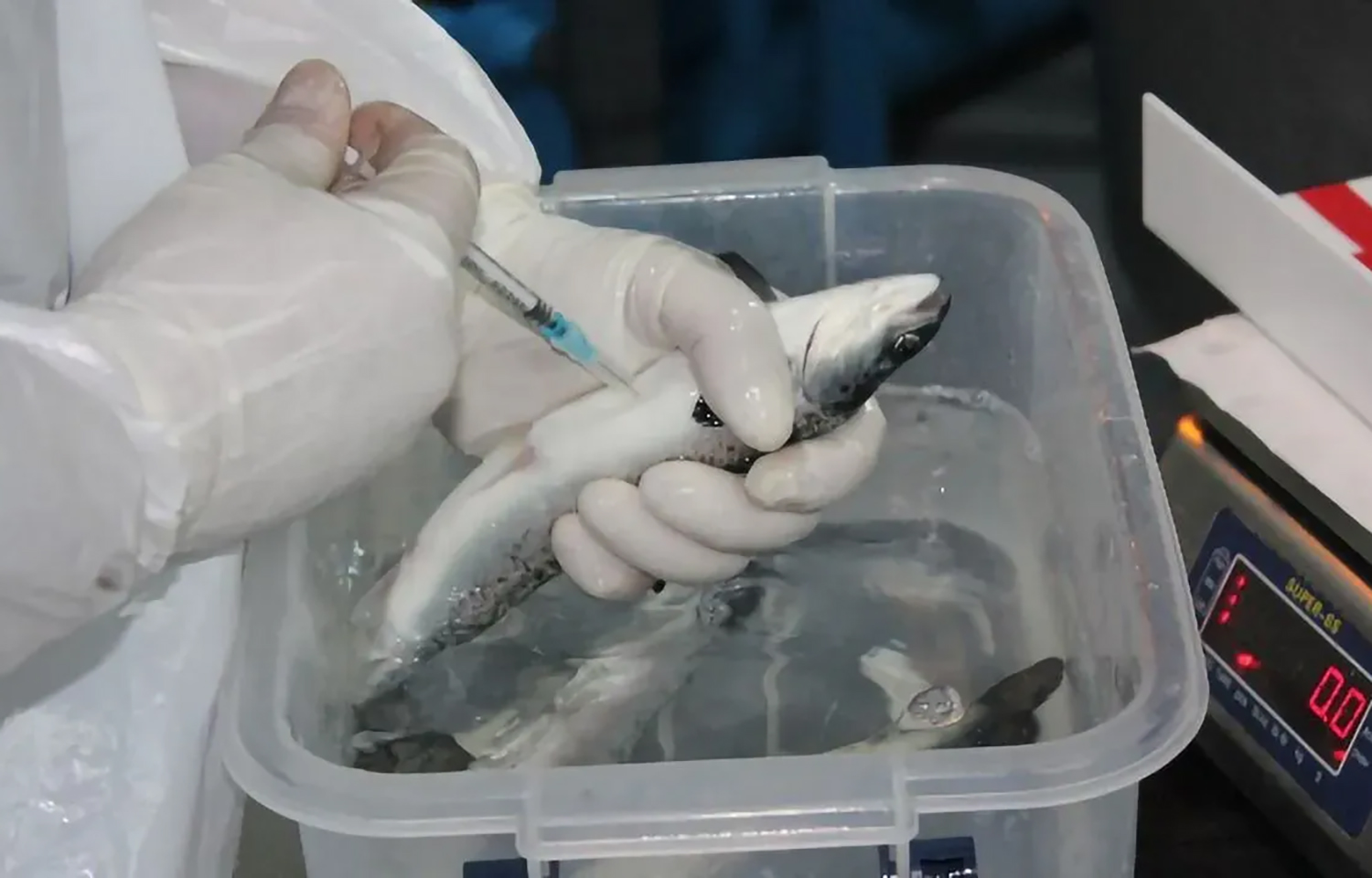The Chilean salmon-farming industry is seeking participation from global pharmaceutical companies to help it reduce its antibiotics use.
The Yelcho Project was launched in March 2024 to foster collaboration in an attempt to reduce the Chilean salmon-farming industry’s use of antibiotics, while simultaneously increasing vaccines to prevent bacterial diseases. It markets itself as the first public-private partnership of its kind between salmon companies, the Chilean Agricultural and Livestock Service (SAG), and the National Fisheries and Aquaculture Service (Sernapesca).
Salmon companies participating include Aquachile, Australis Mar, Blumar, Camanchaca, Cermaq, Cultivos Yadran, Marine Farm, Mowi, Multi X, Salmones Austral, and Ventisqueros. Besides SAG and Sernspesca, the project also features collaboration with the Salmon Council, SalmonChile's Salmon Technological Institute (Intesal), and aquaculture consultancy firm Aquabench.
Project Yelcho is being financed by all the participating salmon companies, though the eventual procurement of vaccines will require one-to-one negotiations between each individual company and the pharmaceutical firms.
According to Yelcho Project Director David Farcas, Chilean salmon firms are willing to commit to buying vaccines if pharmaceutical companies can show improved vaccine efficacy. The project hopes for a win-win situation as pharmaceutical firms make more sales while salmon farmers reduce their antibiotics use, leading to cost savings and improved reputational standing.
“We want pharmaceutical companies to see this as a fantastic opportunity to come and collaborate in a very different approach. The invitation is for pharmaceutical companies to participate; those already in the salmon industry will understand that this is a different way to work with their current clients,” Farcas told SeafoodSource. “For those who don’t have any presence with the salmon industry but work in the chicken or pork industries, this will be an opportunity for them to come here and collaborate, working in a very pragmatic way with some of the most prestigious salmon companies in the world.”
Chile has focused for many years on bringing down antibiotic use in the salmon industry under initiatives such as the Pincoy Project, the Salmon PROA Project, and the Chilean Salmon Antibiotic Reduction Program (CSARP).
The latter’s goal was to achieve 206 grams of antibiotics used per metric ton (MT) of Chilean farmed salmon by 2025. The industry got closest in 2019 at 375 grams per MT, but that number rose year over year to 409 grams per MT in 2020, 471 grams per MT in 2021, and 489 grams per MT in 2022. The increase is due to the industry's inability to respond effectively to salmon rickettsial syndrome (SRS), a bacterial disease that is particularly present in Chilean waters. Camanchaca CEO Ricardo Garcia named it as the primary reason for over 90 percent of antibiotic treatments in Chile.
The Yelcho Project intends to shift that paradigm, Farcas said, with the simple goal of ...








